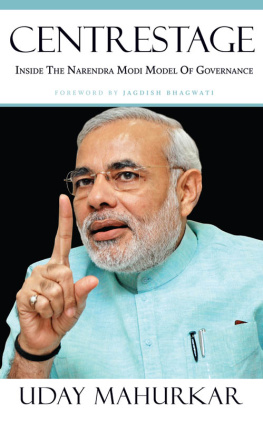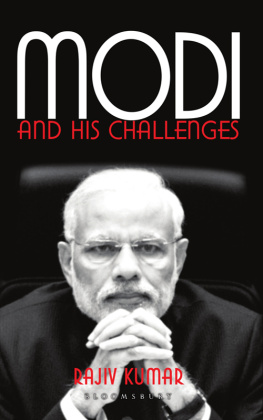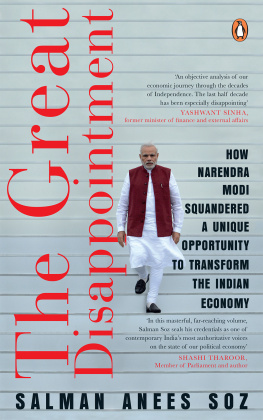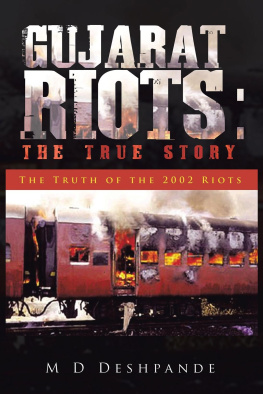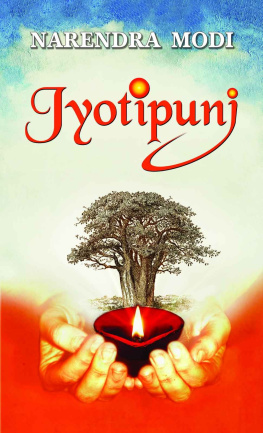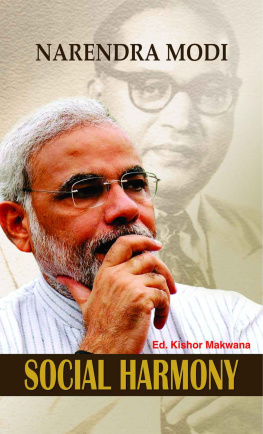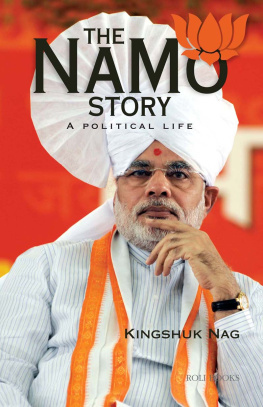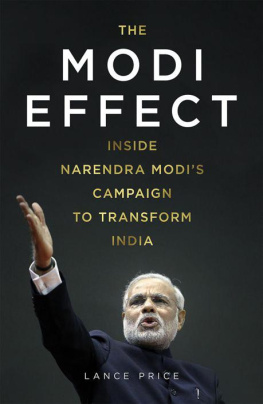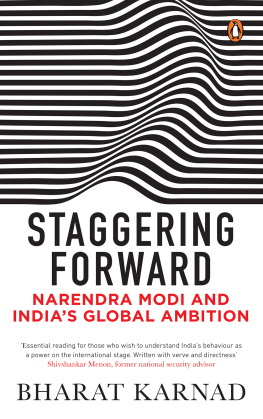CENTRESTAGE


Published by Random House India in 2014
Copyright Uday Mahurkar 2014
Random House Publishers India Private Limited
7th Floor, Infinity Tower C
DLF Cyber City, Gurgaon 122 002
Haryana, India
Random House Group Limited
20 Vauxhall Bridge Road
London SW1V 2SA
United Kingdom
This eBook is copyright material and must not be copied, reproduced, transferred, distributed, leased, licensed or publicly performed or used in any way except as specifically permitted in writing by the publishers, as allowed under the terms and conditions under which it was purchased or as strictly permitted by applicable copyright law. Any unauthorised distribution or use of this text may be a direct infringement of the authors and publishers rights and those responsible may be liable in law accordingly.
EPUB ISBN 9788184006124
Shri Khandoba Prasanna
Shri Renukadevi Prasanna
At the feet of
Brahmaleen Swami Pranavanandji, Bharat Seva Ashram Sangh
Two of the greatest saints of Datta Sampradaya,
Brahmaleen Swami Vasudevanand Saraswati
Brahmaleen Pujyashri Rang Avadhoot
and my living Guru
His Holiness Pujyrashri Rajarshi Muni at Jakhan, Limdi
CONTENTS
ACKNOWLEDGEMENTS
This book happened by way of an accident as I had never thought of writing a book except on the subject of history, which is my first love. Once I took up the challenge of writing it, and started researching various spheres of governance of the Modi Government, I realized I needed help in putting it together. And it came from various quarters.
This book wont have been possible without the encouragement and inspiration from my Jyotish Guru and counsellor Niranjanbhai Shukla who convinced me that writing this book was my destiny. I am also grateful to Dr Ravi and Mrs Komal Rao for their help and moral support. I may share here that it was in 2007 that Dr Rao had predicted that I will write a book after I turn fifty. The prophecy has come true. It was extremely gracious on the part of the Editor in Chief, India Today Group, Aroon Purie and Editor Kaveree Bamzai for allowing me the much needed time and flexibility at work to complete my work amidst the parliamentary polls. I would not have been able to do this without my news coordinator at India Today Ranjit Sahaya who showed great support despite his own work pressure.
In terms of research and sourcing the material for my book, I would like to thank the Gujarat Rural Development Secretary V. Thiruppugazh who helped me with the outline of the book and made crucial material available to me when I needed it. I appreciate the contribution of Secretary to the Chief Minister, AK Sharma, for giving me a precise perspective on various subjects and to Chief Principal Secretary to the Chief Minister, K. Kailashnathan, for offering his useful insights. I am grateful to my publisher Random House India for giving me this opportunity. Writing this book has allowed me to focus on my second love after historythe evil of vote bank politics, which I have constantly opposed.
To my dear parents who were extremely accommodating and kept me free from social obligations so that I could concentrate fully on the book. My wife Smita who stood behind me like a rock as I struggled to cope with the dual pressures of covering the 2014 Lok Sabha poll and writing this book. My daughter Kumari Rigvedita and son Samarjit Singh worked as my secretaries, at times helping me out with little things in connection with the book. I owe you two! Last but not the least I would like to thank all the people of Gujarat who shared their stories and spoke to me openly about their experiences with the Modi Government. Your inputs have made the book what it is today.
Uday Mahurkar
March 25, 2014
Ahmedabad
FOREWORD
India prides itself on its democracy, as exemplified by its elections, universal suffrage, extensive voting, the turnover of Governments at the Centre and States as voting citizens increasingly throw out the bums that do not deliver, and the excellence of its election commission that reduces greatly the incidence of violence.
True, the Congress Party has long been characterized by the Nehru-Gandhi dynasty with its hold on the Indian political scene. But this dynasty is increasingly at risk as the Buddenbrooks phenomenon (as in Thomas Manns celebrated novel), where decline sets in with later generations, seems to have finally set in. By many accounts, the youthful Rahul Gandhi fails to inspire Indians in contrast to the founders of the dynastyMotilal Nehru and his son Jawaharlal Nehruwho dominated the Indian political scene over half a century ago. Perhaps brand politics does not work its charm any more, as citizens look for performance rather than for whose spouse or progeny the contesting politician is. Except for cronies around these politiciansamusingly called chamchas in the Hindi vernacularthe brand name politicians are increasingly at discount. This is all to the good, of course, as dynasties reduce the political mobility that can bring in fresh blood and ideas that dynasties often lack.
The increasing weakening of dynastic hold on politics in India is therefore an improvement in the functioning of our democracy. But we must also examine three other aspects of democratic functioning that make democracy attractive.

| We must have what is now called a liberal democracy; elections are not enough. Four institutions must be in place: first, a robust civil society (i.e. NGOs); second, a political opposition; third, an independent judiciary; and fourth, a free press. |

| Next, we must also have effective universal suffrage, unlike for example in the US where black groups are still at risk of being disenfranchised. |

| Finally, we must have an informed democracy. This requires that we have debates by political leaders, and by policy intellectuals whose ideas are in the public domain, so that the public can comprehend and judge between differing programmes. It also means that we must have access to unbiased information on the main politicians who seek to lead the country. |
Now, we are among the few countries blessed with a liberal democracy. Admittedly, improvements are necessary. The press is largely independent. But, occasionally it fails us. Consider for example its reluctance generally to report on the findings of the Supreme Courtappointed Special Investigation Team (SIT) that exonerated Chief Minister Narendra Modi from any liability whatsoever for the 2002 Gujarat riots, while generally maintaining silence over the far worse pogrom by the Congress under Prime Minister Rajiv Gandhi against the Sikhs in 1984.
Voting rights are also zealously safeguarded in the country. India has also not had military takeovers, or backseat driving by the military, as in Pakistan. We have therefore continued to enjoy voting rights and associated civil rights such as Habeas Corpus (except for the one time that, at a national level, Emergency led to a suspension of these rights by Prime Minister Indira Gandhi only to have her go back to elections which she lost).

